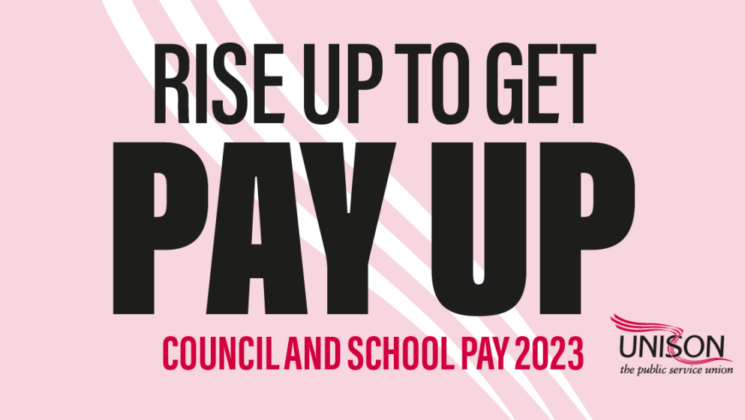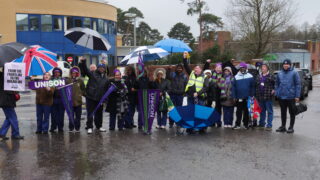Tens of thousands of council and school support staff across the South East region will begin voting today (Tuesday) on whether to strike over pay, says UNISON.
The workers in Berkshire, Buckinghamshire, Hampshire, Kent, Oxfordshire, Surrey, and East and West Sussex will be joined in the ballot by a third of a million colleagues working in local government across England and Wales.
The wage offer made by employers to local government staff is nowhere near what’s needed to meet rising prices during the cost of living crisis, says the union.
UNISON had called for an increase of 2% above inflation. Now the union is asking more than 360,000 workers it represents in the sector whether they are prepared to take industrial action.
Since 2010, the value of local government pay has fallen by 25% and the offer of a flat rate rise of £1,925 falls way short of workers’ expectations and needs, says UNISON.
The six-week ballot, which closes on Tuesday 4 July, includes refuse collectors, social workers, teaching assistants, librarians and many more working at 4,000 different employers.
UNISON South East regional secretary Steve Torrance said: “Too often council and school support staff are taken for granted. Without them, the services on which whole communities rely won’t exist.
“With cuts to local government and education budgets, employees are having to do more with far less. That puts huge pressure on an already-stretched workforce struggling to keep afloat as costs continue to soar.
“Staff are leaving their jobs because pay is falling ever further behind, and neighbourhoods will suffer. Bins won’t be collected, schools won’t have sufficient staff and vulnerable people will be deprived of vital support.
“These workers are truly dedicated but they’ve had enough. Going on strike is a huge step that isn’t taken lightly but many feel they have to make a stand.
“Employers can do far better. But ministers also need to step up to make sure local government is given the funding it needs, so staff get a decent wage and services are protected”.
Notes to editors:
– For workers in local government and schools, pay and other terms and conditions are determined by a negotiating body, the National Joint Council (NJC) for local government services. It is made up of representatives from UNISON, other trade unions and employers. The agreements they reach after negotiations are contained in the “Green Book” which is available to download from the Local Government Association. UNISON has over half the trade union seats on the NJC and is the majority union.
– UNISON is the UK’s largest union with more than 1.3 million members providing public services in education, local government, the NHS, police service and energy. They are employed in the public, voluntary and private sectors.







